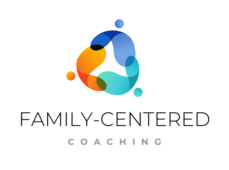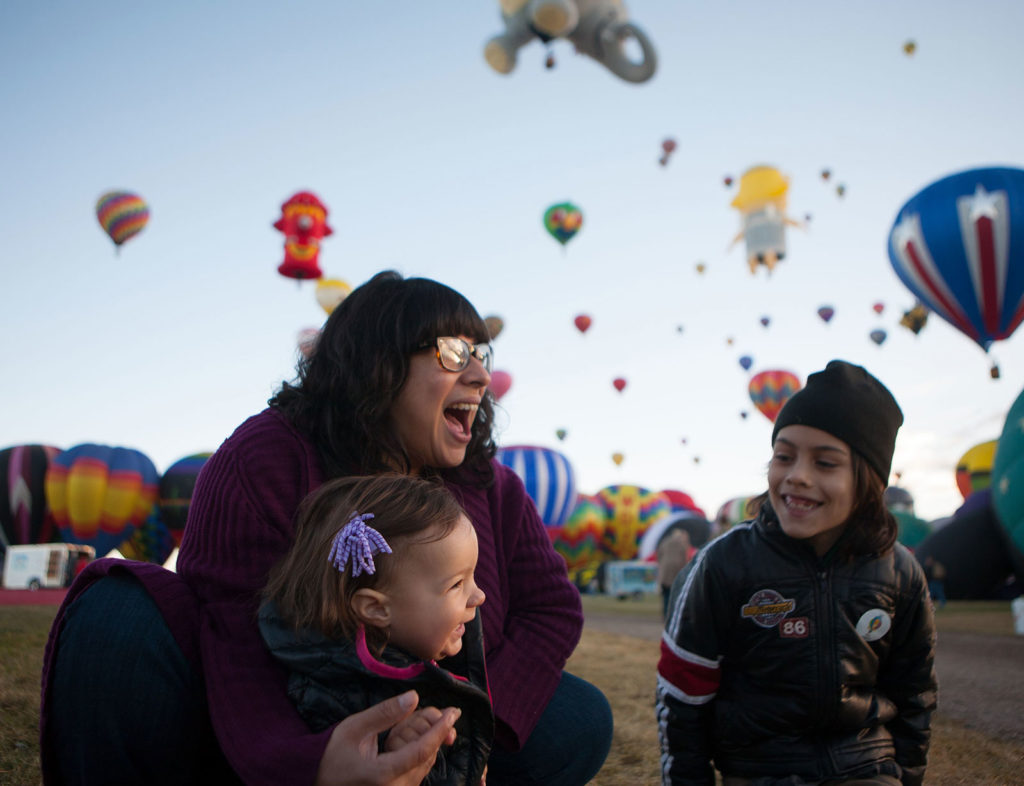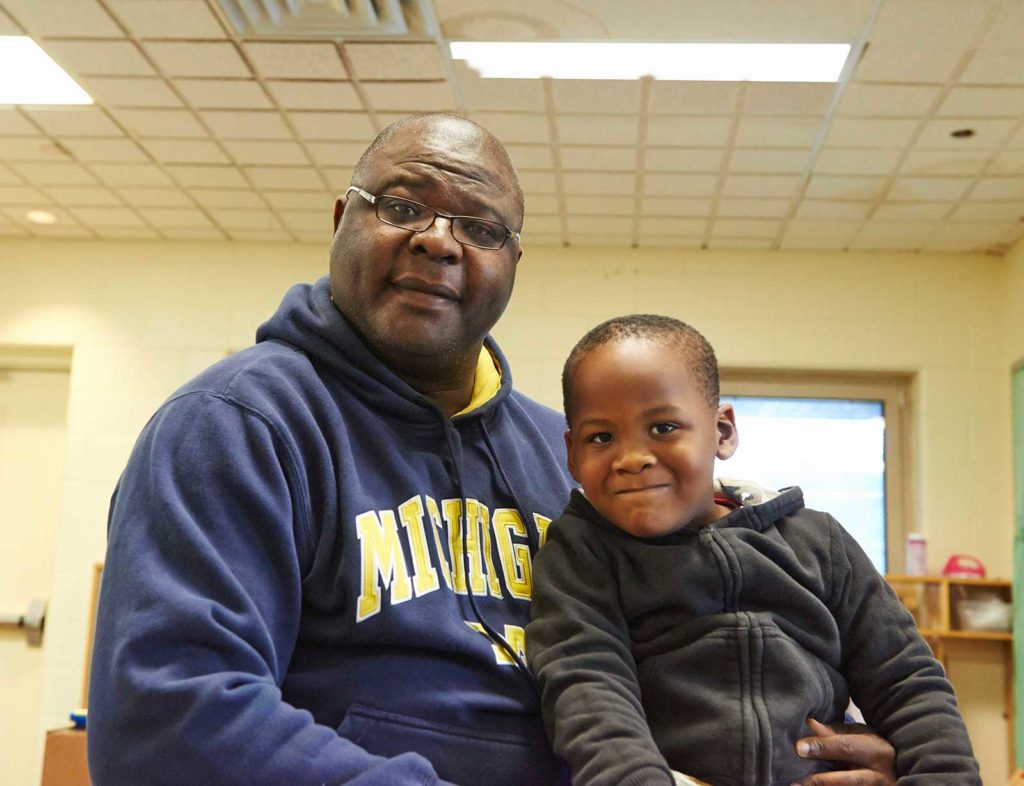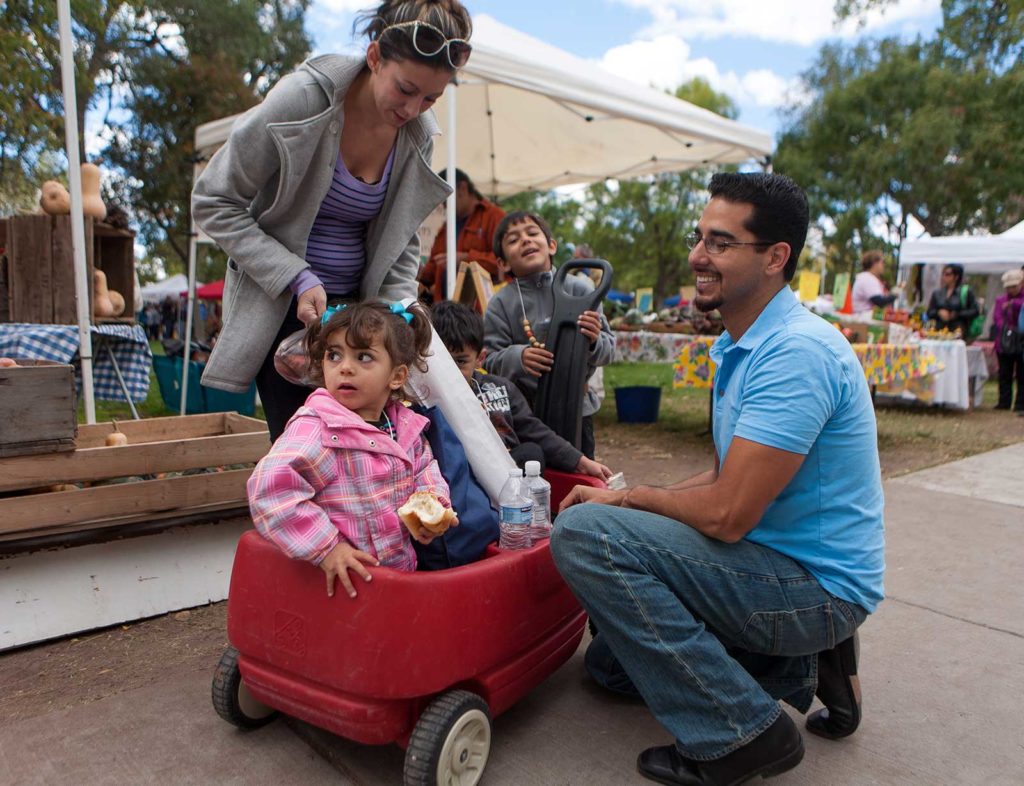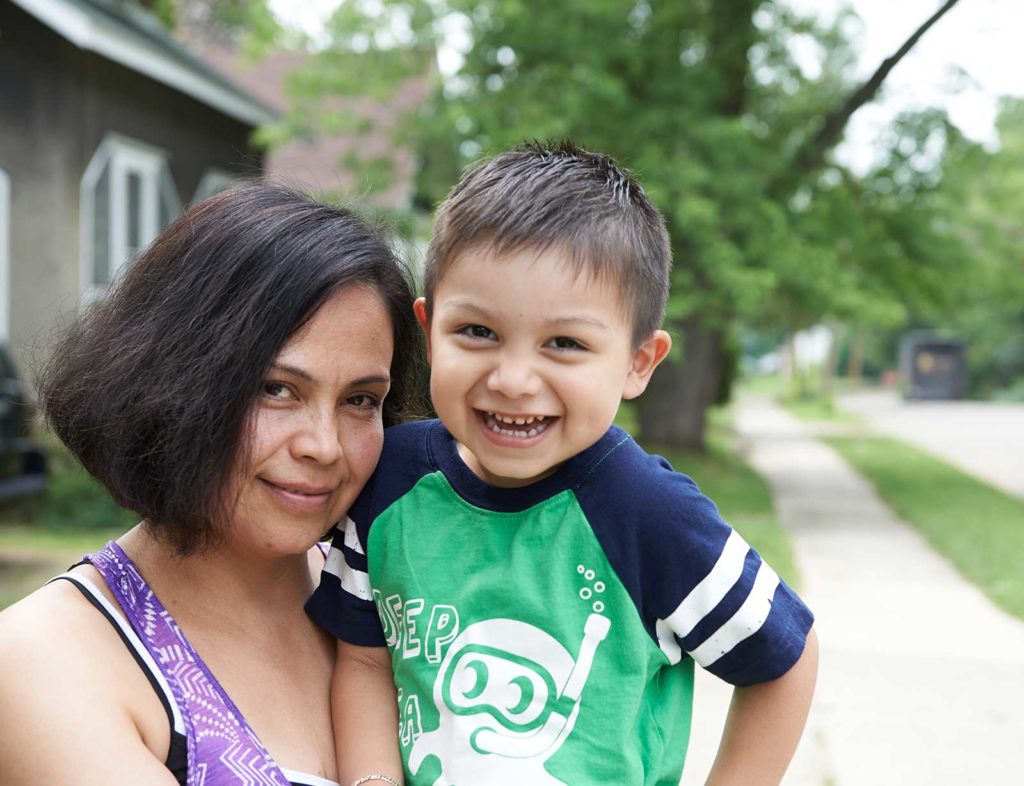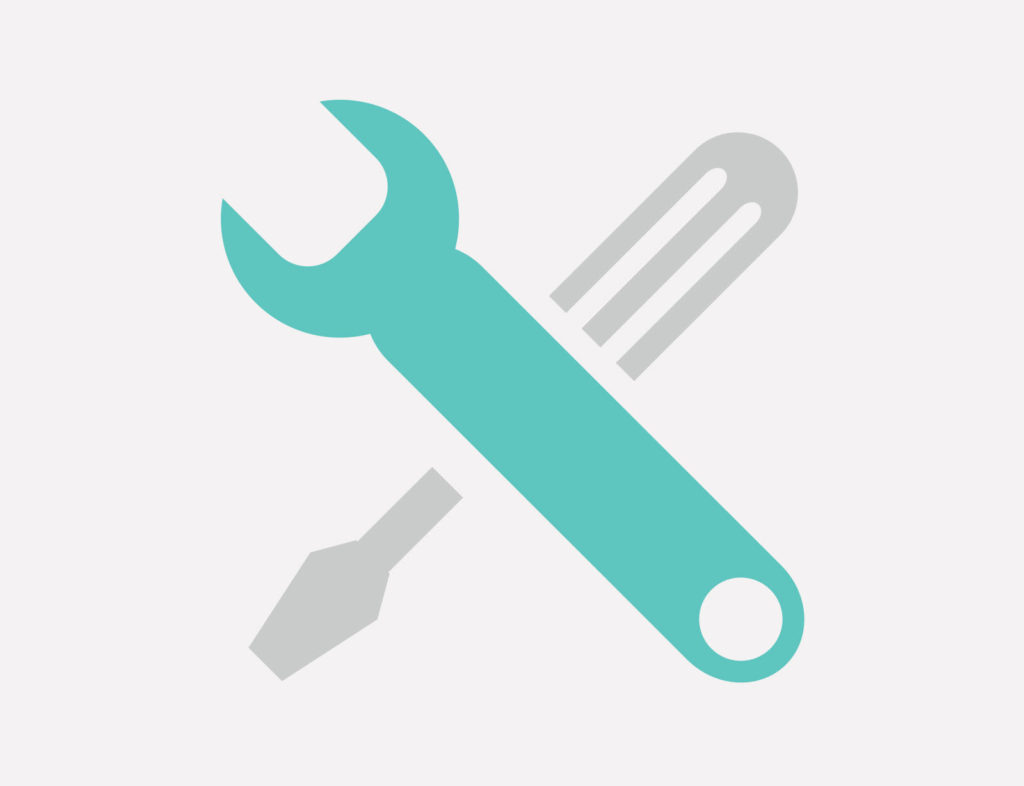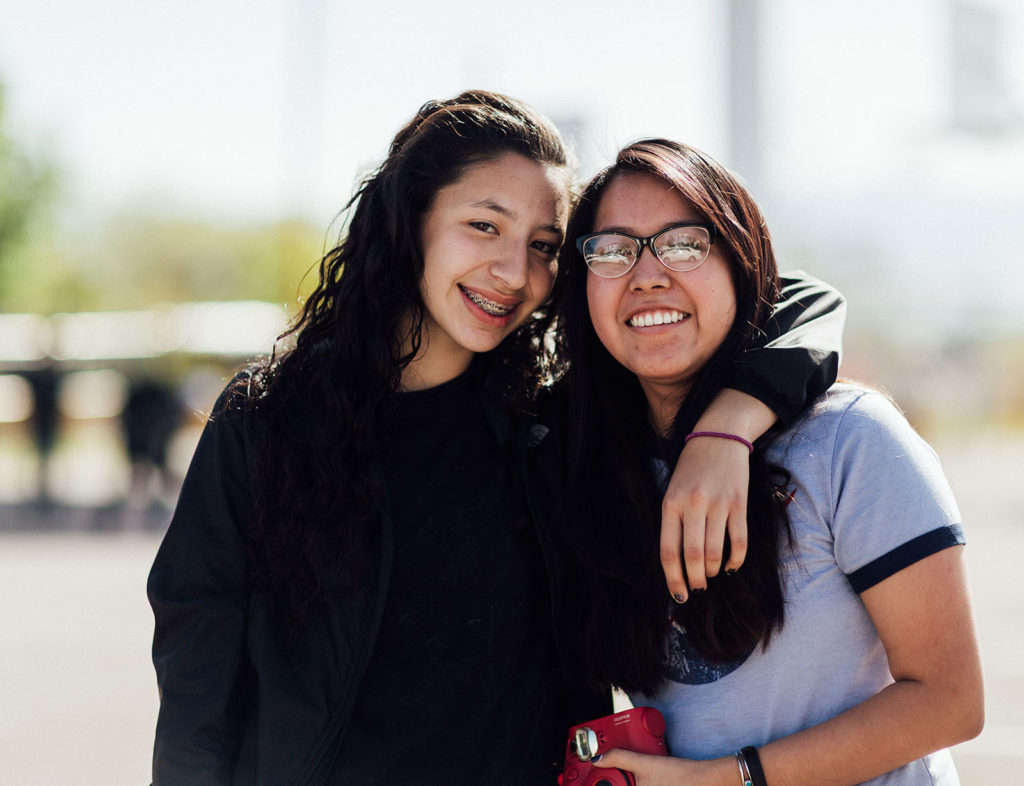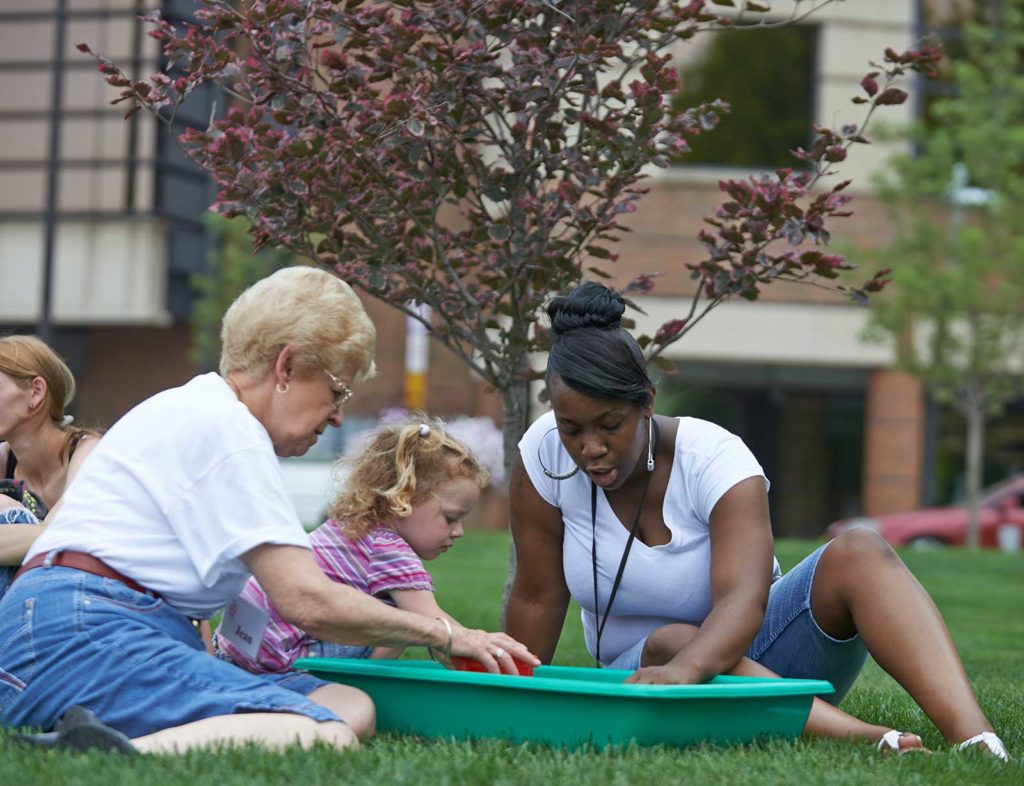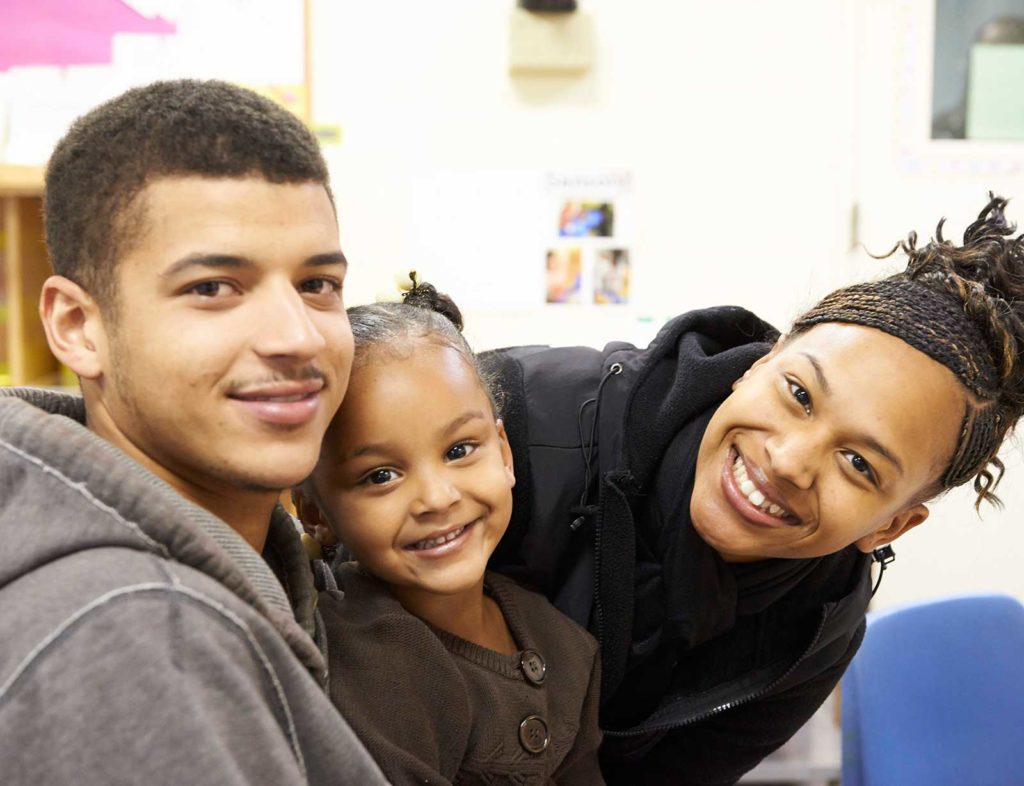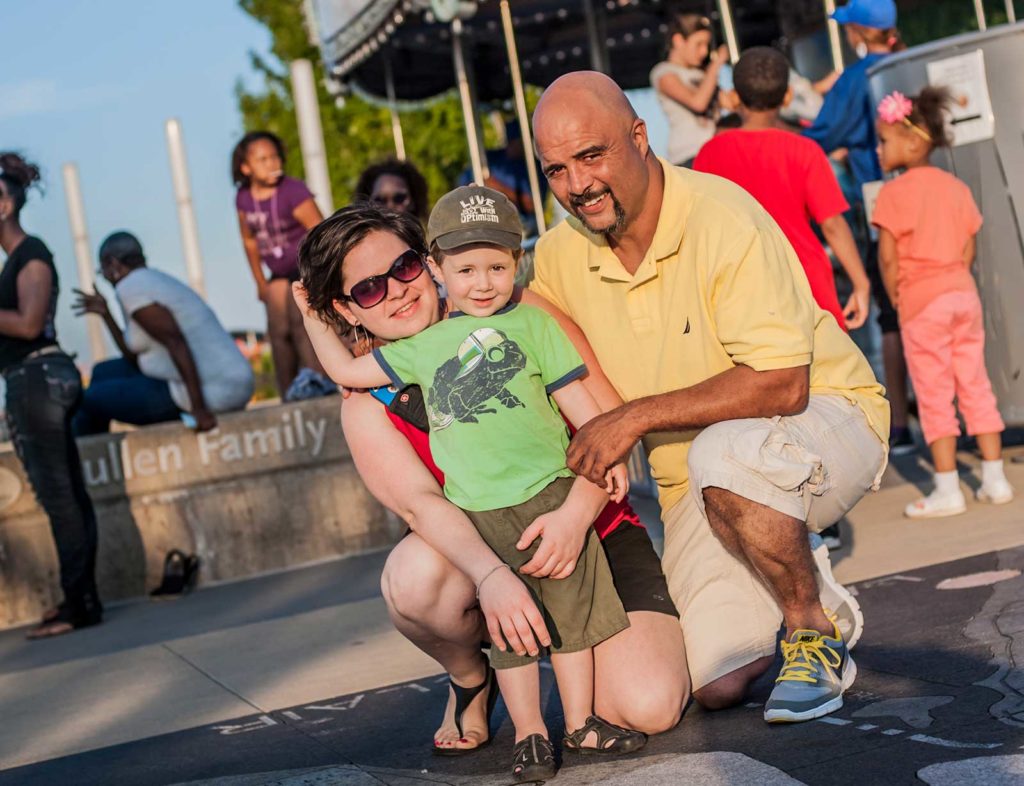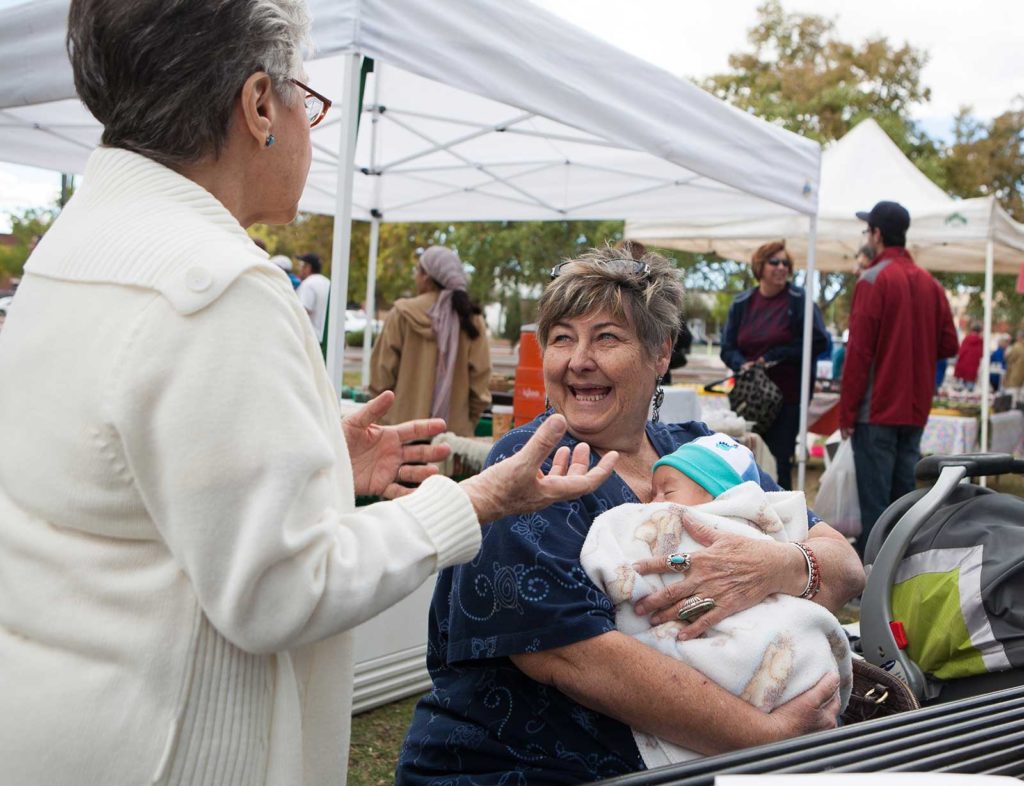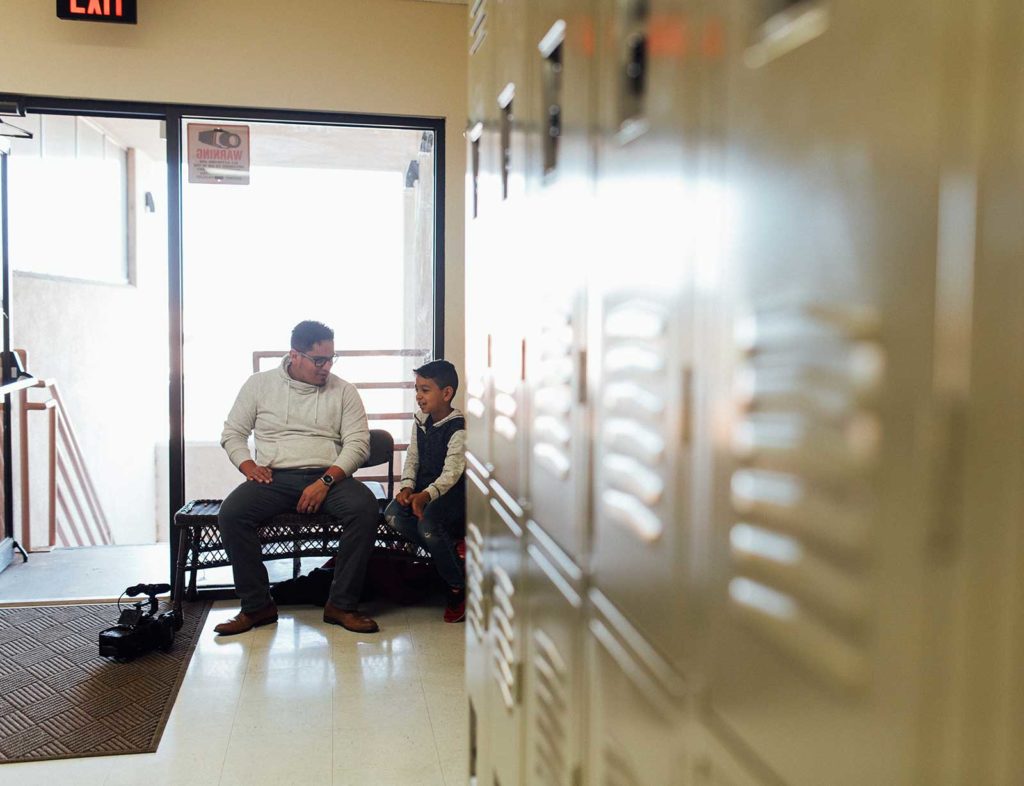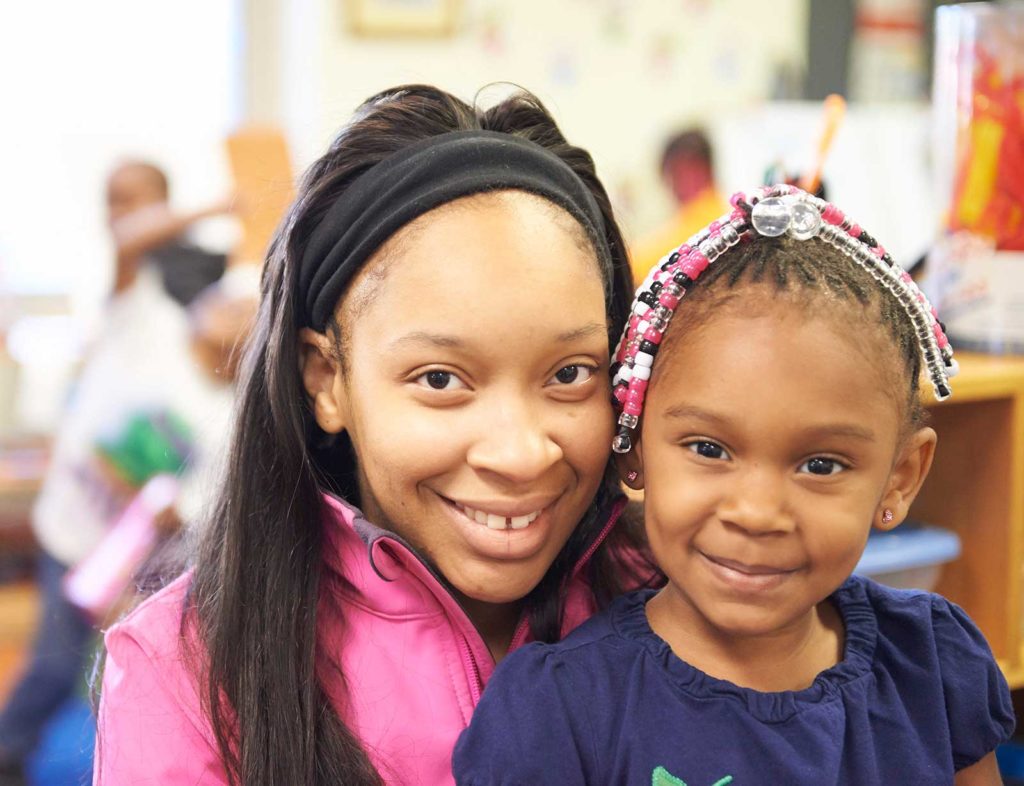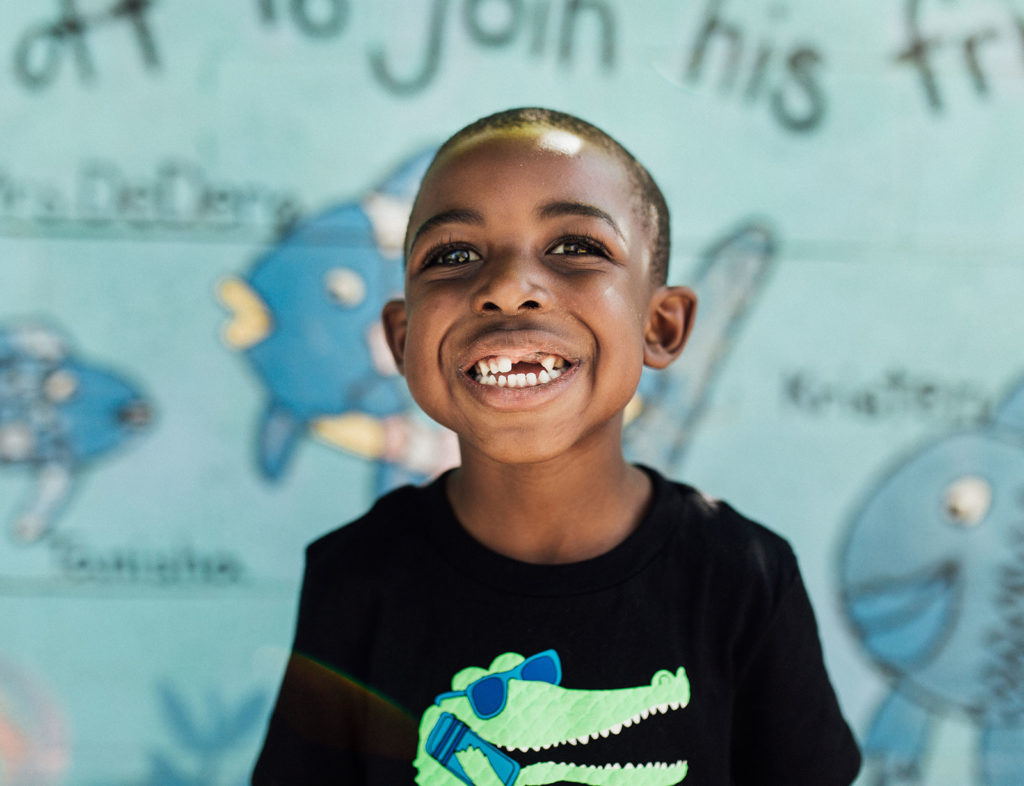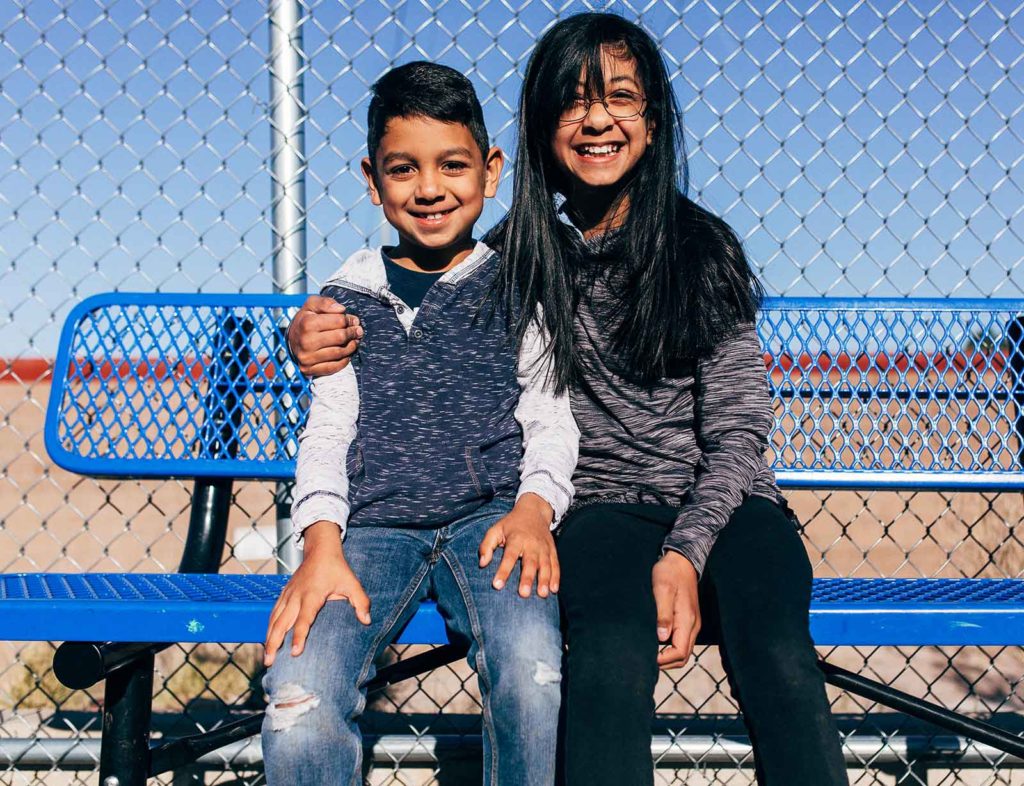Deepen your coaching skills and engage families with a coaching mindset.
Get to Know Family-Centered Coaching:
Families don’t segment their lives and goals into silos and programs. But funding requirements, organizational missions, and other barriers tend to focus social programs on one aspect of a participant’s life. As a result, families experiencing poverty face added obstacles and stress as they attempt to piece together fractured services with differing eligibility requirements, duplicate applications, and unfamiliar case managers.
Family-Centered Coaching is an approach to meet the interconnected needs of a participant’s life and family. By shifting from what services an organization offer to what a family needs, organizations practicing Family-Centered Coaching see transformational outcomes that deeply connect to participants’ goals and dreams for their futures.
Family-Centered Coaching FAQ
Family-Centered Coaching Overview
Coaches, Parents, Participants, and Families Defined
Family-Centered Coaching Principles
Practice Trauma-Informed Care in Family-Centered Coaching
Foster Executive Skills through Family-Centered Coaching
Weave Behavioral Economics into Family-Centered Coaching
W. K. Kellogg Foundation: Introducing Family-Centered Coaching
The Prosperity Agenda: Launching Family-Centered Coaching
Family-Centered Coaching Toolkit (August 2017)
Six Steps to Family-Centered Coaching (August 2017)
Build a Family-Centered Coaching Mindset:
A Family-Centered Coaching mindset is about how coaches and organizations see and engage with participants and their families. Using a Family-Centered Coaching mindset means moving from thinking about individual participants to taking the whole family into consideration.
Coaches who have a Family-Centered Coaching mindset value families’ expertise in their own lives rather than believing the coach has all the answers. They use a strengths-based approach that builds on the ways parents are already successful and the support systems they cultivate.
One of the most effective ways to intentionally adopt a Family-Centered Coaching mindset is to put the ten Family-Centered Coaching principles into practice. Primary to these principles is the understanding of the institutional forces that can prevent families from moving forward: the long and persistent effects of systemic racism and poverty are at the root of many family challenges.
Why Our Mindsets Matter
Developing a Family-Centered Coaching Mindset in Your Organization
Working Toward Racial Equity in Family-Centered Coaching
Develop Family-Centered Coaching Skills
Coaches who practice Family-Centered Coaching skills create exceptional experiences, for themselves and participants. Coaches practice these skills to create both the boundaries and opportunities to put the principles of Family-Centered Coaching into action.
The four core coaching skills of Family-Centered Coaching create a space to build stronger relationships with participants based on trust and transparency. Additional key situational coaching skills can then maintain accountability and foster progress. Together, the practice of these skills create a satisfying, ongoing partnership based on deep mutual respect.
Core Four Family-Centered Coaching Skills
Situational Family-Centered Coaching Skills
Prepare Yourself & Your Environment For Coaching
For some staff, adopting family-centered approaches may require a fundamental shift in the way you work with participants. These approaches require a change in the power dynamic and the relationship, especially if you are used to being the expert at resolving problems. To work with participants to support them to find their own solutions to their challenges will be a different dynamic.
It is important for coaches to get into a positive mindset before working with participants. You can do several things before and during a meeting with participants to support you in holding a positive mindset.
Self Care and Management
Tool: Ready to Coach Checklist
Tool: Everyday Strategies for Working with Families
Build a Relationship For Coaching
Bring Family Into the Coaching Conversation
Families don’t thrive by focusing on only one aspect of their lives at a time. Family-Centered Coaching is an opportunity to widen the lens we may see participants through to align with theirs.
Whether coaches work in workforce development, early learning, housing or some other program, they use Family-Centered Coaching to bring family into the coaching conversation.
- Reflect on how your organization can support families to address multiple areas of their lives to reach their interrelated family goals.
- Use the Hopes & Dreams and Who Is In My Family? tools with participants to build a relationship through the lens of family.
Tool: Who Is In My Family?
Tool: My Hopes and Dreams
Choose Which Coaching Role to Play
Family-Centered Coaching recognizes that families are most successful when supported by a range of approaches. Because change is not linear, families can benefit from the use of case management, readiness assessment, and goal-setting approaches at different times and for different areas of their lives. Coaches work with participants to identify the best approach at a given time, with the intention of moving toward setting, practicing, and reaching a family’s life goals.
For example, a family may start with a goal of finding a job but then lose their apartment. The participant and coach may decide to pause pursuing the job and move to case management to solve the urgent housing issue.
In another example, a participant started with the goal of becoming a nurse, but after many meetings hasn’t taken the steps discussed during the coaching sessions. The participant and coach decide to step back and assess readiness for change using motivational interviewing to help identify what is going on for the participant.
Fluidity of Approach
Family-Centered Coaching Approaches
When to Engage in Case Management
When to Engage in Discovery (Readiness Assessment)
When to Engage in Goal Setting & Practice
Tool: Roles a Coach Can Play
Tool: What Does It Sound Like When Coaches Use FCC Approaches?
Tool: The Roles of Participants and Coaches in Family-Centered Coaching
The Stages of Change
Tool: Listening For Participant’s Readiness to Change
Discover and Support Family Priorities
Family-Centered Coaching is a strengths-based approach that puts participants in the driver’s seat to determine what results they want to achieve through coaching. Coach and participant are equal partners in the coaching process, but each have distinct roles: the participant sets the agenda and the coach guides the process.
Participants may have several areas of their life in which they would like to make changes. Coaches create opportunities for participants to identify and prioritize those goals. The coach and participant discuss and agree how they want to work together based on the family’s interrelated interests and the participant’s priorities.
The Wheel of Life can be used with the participant to identify both core strengths and needs, and to assess where families want to focus. For each area of the Wheel of Life, there is a tool below that lists:
- Powerful questions and other family-centered inquiries
- Resources to identify in your community
- General tools and resources related to the topic
Holding the Participant’s Agenda
Tool: The Wheel Of Life
Template: Developing a Local Resource Guide
Tool: Coaching on Basic Needs: Food, Housing, Transportation, Safety
Tool: Coaching on Employment, Education, and Career Areas of Life
Tool: Coaching on Child Well-Being and Parenting Areas of Life
Tool: Coaching on Financial Areas of Life
Tool: Coaching on Health and Well-Being Areas of Life
Tool: Coaching on Family, Friendship, & Other Relationship Areas of Life
Tool: Coaching On Legal Areas of Life
Support the Practice of Goals
In Family-Centered Coaching, coaches guide the practice setting and reaching small, incremental, short-term steps towards larger milestones. Through practice, people are able to build skills and experience wins as they move towards their milestones.
Milestones are essentially large goals. They are the big events, such as getting a job, completing a GED, or finding an affordable apartment. These large milestones are sometimes overwhelming because they actually contain many smaller steps.
The quick wins of succeeding in smaller initial steps can also happen in shorter time frames. For example, a participant may have a goal to help their child succeed in school. An initial step might be to schedule a meeting with the teacher. The steps under this can be: write a list of questions to ask the teacher, draft an email asking the teacher for a meeting, review the email with the coach, identify times the participant can meet with the teacher, and send an email to the teacher.
As steps are completed and momentum is gained, more steps can be made that reach further into the future. Coaches can scaffold their help during this time so that the participants takes more and more actions that leverage increased skills.
The Practice of Goals
Tool: Plan, Do, Review
Tool: Family-Focused Powerful Questions
The Prosperity Agenda provides these resources as the designated national administrator of Family-Centered Coaching.
